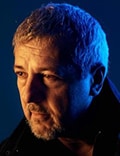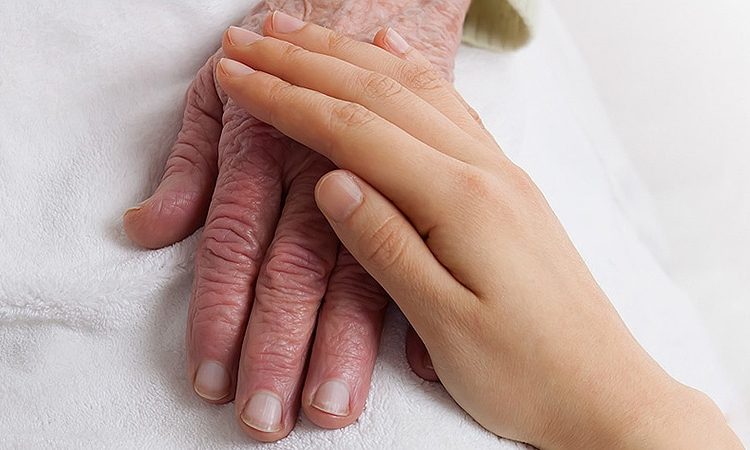BUENOS AIRES — On the night of March 28, 2005, while on call at a hospital in Tarragona, Spain, Marcos Hourmann, MD, attended to Carmen Cortiella. The 82-year-old patient had heart failure, advanced colon cancer, digestive hemorrhage, diabetes, and other comorbidities. There was nothing that could be done. She struggled to breathe, and palliative sedation would only postpone the inevitable for a few hours or a day.

Dr Marcos Hourmann
Cortiella’s daughter pleaded with Hourmann to do something so that her mother would no longer suffer. Even Cortiella herself had previously asked Hourmann not to make her daughter suffer due to her disease, and he did not hesitate. He took a syringe, loaded it with 50 mg of potassium chloride and injected it into her vein. He recorded his action in the medical record. And he went to rest. “I helped her to die. The patient couldn’t take it anymore,” he recalls today.
The life of the emergency surgeon and specialist born and trained in Argentina would change forever. “The day that Carmen’s agony ended, Hourmann’s began,” wrote the Spanish newspaper El País in 2020. Months later, the hospital reported him for his action, since euthanasia was not approved in Spain. In March 2009, as an outcome of an agreement with the prosecutor, he was sentenced to 1 year in prison (which was reduced to 4 months, noneffective) and to another year of debarment from practicing medicine, even though the family of the patient never accused him. In the meantime, the specialist worked for some years in Wales, lying about his past, until the British newspaper The Sun discovered him and christened him “Doctor Death.” His license was revoked, and he had to leave the country.
Life Into Art
Hourmann gathered details of the episode, of the subsequent developments, and of his family history in a documentary play. After starring in 168 performances of the play in Spain over 4 years, Hourmann performed it for the first time in Buenos Aires. The play, titled I Will Celebrate My Death, was co-written and directed by the directors Alberto San Juan and Víctor Morilla, who saw Hourmann in a television interview. The physician described the play to Argentine newspaper La Nación as “a hymn to life, full of humor, of peace, of joy, and of craziness and also of sadness, of course. It is a whirl of emotions throughout the 50 minutes.” Among his plans is to stage it in English in Malta, by the middle of 2023, in addition to staging new shows in Spain. “The idea is to continue with the play as long as I can. There is still life, there’s life,” he stated.
Hourmann told Medscape Spanish Edition that he was never a euthanasia activist, but rather a life activist. In this extreme situation, his action was “a human action, when medicine could no longer offer anything, and the only thing left as treatment was to end unnecessary suffering, and upon the patient’s request, of course. In life, I have learned that human suffering has a limit, that unnecessary suffering does not make sense. You don’t have to be a doctor to understand that.”
The Hippocratic Oath
Euthanasia is approved in a handful of countries around the world, including the Netherlands, Belgium, Luxemburg, Spain (since June 25, 2021), Canada, Colombia, and New Zealand. In Argentina, there are bills that will be debated in Parliament.
Does euthanasia clash with the medical mandate to “defend life” until the very end and with the ethical tenets of the Hippocratic Oath? Hourmann does not believe so. “The Hippocratic Oath is a moral and ethical obligation that the doctor has with regard to his work and the responsibility of what it means to care for a patient. Obviously, this is changing over time, but I think of this every day and I have always followed its tenets. When I conduct a medical act, I think about doing what is best for the patient. The utmost effort that I thought about with Carmen was to risk my own life to help her to die in a more dignified manner.”
If we consider that euthanasia implies a deliberate harm or action to cause death, it’s logical that there will be resistance in the medical community.
Hourmann noted that, “Presented like that, nobody will want to do it. But I don’t see it that way. Euthanasia is another form to end a patient’s life when there is no viable medical or scientific solution and there is an explicit request by the patient that the suffering impedes them from continuing to live. That is how I understand it. It’s a concept of life. And although it appears that they go against each other, euthanasia and the Hippocratic Oath go hand and hand, in parallel.”
In I Will Celebrate My Death, Dr Hourmann recounts that his father had a stroke that left him in a wheelchair and aphasic for 2 years until his death. “It was a tremendous, agonizing, and very sad suffering. And I would have preferred that my dad didn’t suffer. But that’s me. My dad always feared death and he loved life. He never talked about asking to die. If he would have asked me, of course I would have helped him, without a doubt. But I never would have done something against his will nor against the will of anyone,” he maintained.
Due to his specialty, surgery and emergency care, Hourmann stated that he was never asked by any other patient to help them to die. “You don’t get to establish continuous dialogue and empathy with patients in the way that, for example, a specialist in internal medicine, an oncologist, or a pediatrician does.”
The Audience Reacts
“What would you do now if the same situation as Carmen were to happen again with another of your patients?” Medscape Spanish Edition asked. “Today, December 2022, I would do it, without a doubt, under the euthanasia law [in effect in Spain] that has very clear and resounding requirements on which patients can undergo this act. However, without a law, seeing what I have, I would not do it again, because that episode led me and my family to despair. I am not a kamikaze, hero, or victim. However, it was the best medical act I performed in my life. That is my conviction,” he responded.
At the end of the play and before an open discussion where he speaks with the public and answers their questions for 40 minutes, Hourmann randomly invites six spectators to decide whether they can consider him guilty or innocent of that 2005 act with Carmen Cortiella. In the performance in Buenos Aires on December 11, the “jury” happened to included two physicians. He was “absolved” by majority decision: 4 to 1 with one abstention. Most “verdicts” have gone that way. “I believe that many people think that it’s a decision that we should take freely, without interferences,” he pointed out.
“It’s not justified for someone to continue to suffer after surgeries, chemotherapy, or radiotherapy for something that is not curable. This is called ‘therapeutic obstinacy.’ Have you asked them if they want to receive all of that to continue to live? Are all those medical measures justified to see if someone can be saved if they tell you they do not want to continue? Maybe it justifies the science, but we need to ask the patient if they are conscious, if they are mentally capable, if they want for nothing more to be done. Not everything is justified. Especially death,” he told the online newspaper Infobae.
Hourmann continues to practice as a physician and works as the chief of the emergency room at a clinic in Sabadell, near Barcelona, Spain.
Follow Matías A. Loewy of Medscape Spanish Edition on Twitter @MLoewy
This article was translated from the Medscape Spanish edition.
Source: Read Full Article
